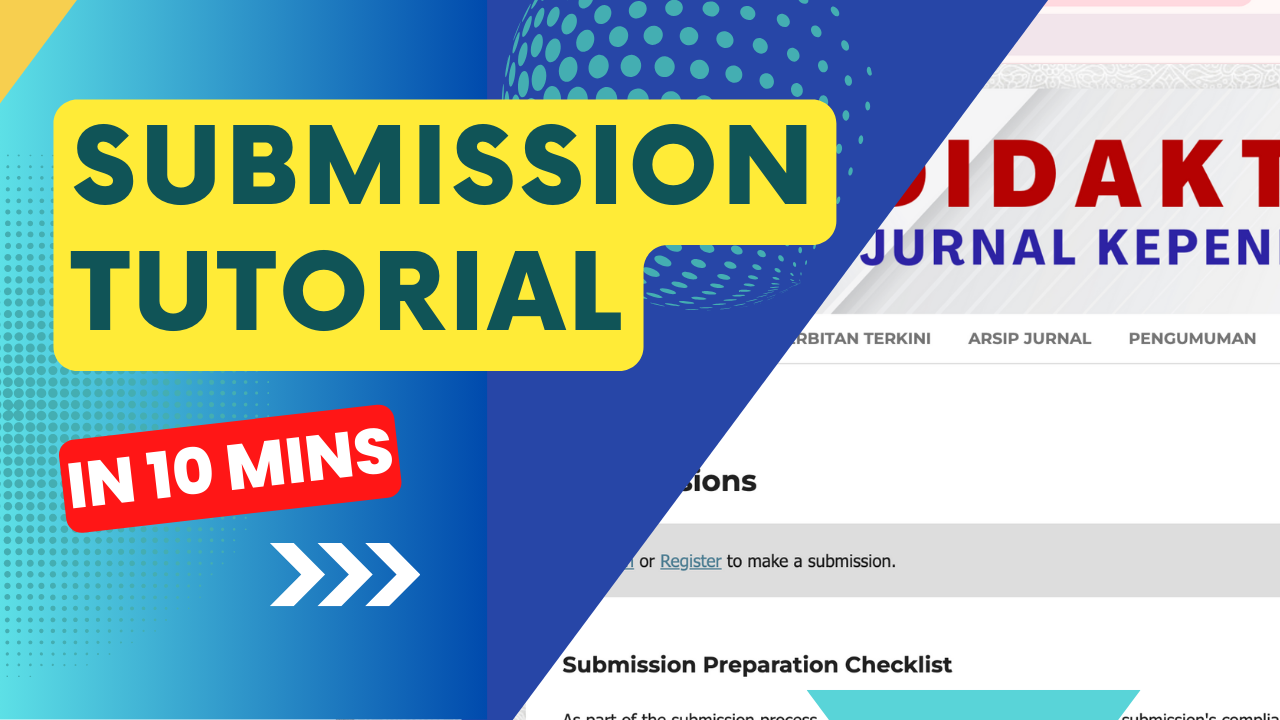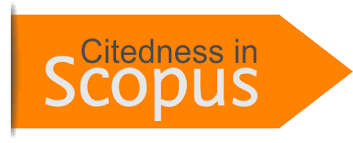Improving Teacher Competence Through Curriculum Alignment Training Programs and Competency Tests for Prospective Assessors PT. Daihatsu at Islamic’s VHS 1 Blitar
Abstract
A teacher is required to be able to develop competence and update the latest information technology. One form of technology update that can be done by teachers is participating in training programs.. This research uses a qualitative approach by carrying out the type of case study research. The results showed that training planning can be done in several stages. The first stage is the administrative and scheme preparation stage carried out by the committee together with representatives from PT Daihatsu East Java. The implementation of training begins with the socialization of the industrial curriculum, in this program teachers are introduced to industrial competencies which are used as material for curriculum alignment. The next training is the assessment of prospective competency test assessors. The process of becoming a competency test assessor involves several important stages. Prospective assessors must take part in training and examinations organized by PT Daihatsu in the Pintar Bersama Daihatsu (PBD) program. The final result of the assessment of prospective assessors is proven by an assessor certificate that can be used to guarantee the quality of student graduation when conducting competency tests at school.
Metrics
References
Ahmad, Y., Yano, H. A., & Wildan, H. (2020). Pelatihan Peningkatan Kompetensi Pra Uji Kompetensi Kejuruan (Ukk) Jurusan Teknik Otomotif Kepada Siswa VHS Rigomasi Bontang. Jurnal Abdimas Bina Bangsa, 1(1), 128–136.
lfiah, S., Djuanda, U., Aliyyah, R. R., & Djuanda, U. (2021). Uji Kompetensi Guru Peningkatakn Mutu Pendidikan Melalui Sertifikasi Guru di Aceh. July.
Azura, Y., Tarsono, T., Hermawan, A. H., & Ningsih, A. (2022). The Role of Educational Psychology for Teachers in Learning Effectiveness. Jurnal Inovasi Pendidikan Agama Islam (JIPAI), 2(2), 83–93.
Badan Pusat Statistik. (2022). Keadaan Ketenaga Kerjaan Indonesia Februari 2022 (Issue 34).
Barnes, J. (2015). An Introduction To Cross- Curricular Learning. March.
Batubara, S. (2017). Analisis Perbandingan Metode Fuzzy Mamdani Dan Fuzzy Sugeno Untuk Penentuan Kualitas Cor Beton Instan. It Journal Research and Development, 2(1), 1–11.
Billett, S. (2011). Vocational Education: Purposes, Traditions and Prospects [1 ed.]. In Journal of Chemical Information and Modeling (Vol. 53, Issue 9).
Billett, S. (2020). Perspectives on enhancing the standing of vocational education and the occupations it serves. Journal of Vocational Education and Training, 72(2), 161–169.
Brockmann, M., Clarke, L., & Winch, C. (2008). Knowledge, skills, competence: European divergences in vocational education and training (VET)- the English, German and Dutch cases. Oxford Review of Education, 34(5), 547–567.
Dardiri, A. (2012). Membangun Citra Pendidikan Kejuruan: Manfaat dan Implikasinya Bagi Perbaikan Kualitas Output dan Outcome. Innovation of Vocational Technology Education, 8(1).
Dzakiyyah, H. N. (2022). Program Pengembangan Manajemen Diklat Terhadap Peningkatan Kualitas Guru di Era Society 5.0. Andragogi, 4(1), 15–24.
Frovihandika, D., Arifin, Z., & Widiastuti, E. (2020). A Suitability Of Competency Certification Scheme For Automotive Vocational High School With LSP P1 Against Business and Industrial World Needs In Semarang City. 401(Iceri 2019), 110–115.
Hammond, D. J. (2017). An investigation into the impact of an integrated curriculum on learning in the primary school. Durham University.
Hipkins, S., Bolstad, R., Boyd, S., & McDowell, S. (2014). The Key Competencies: Realising the Potential of the New Zealand Curriculum. NZCER Press. https://www.ero.govt.nz/publications/the-key-competencies-realising-the-potential-of-the-new-zealand-curriculum.
Mamlakah, T. (2023). GURU PROFESIONAL : MENGGALI KOMPETENSI DAN. Jurnal Of Education, 3(4), 447–453.
Maryanti, N., & Apriana, D. (2019). Kompetensi Siswa VHS dalam Menyongsong Revolusi Industri 4.0. Prosiding Seminar Nasional Pendidikan Program Pascasarjana Universitas PGRI Palembang, 633–642.
McPhail, G. (2018). Curriculum integration in the senior secondary school: a case study in a national assessment context. Journal of Curriculum Studies, 50(1), 56–76.
Mulder, M. (2019). Foundations of Competence-Based Vocational Education and Training. Handbook of Vocational Education and Training, 1–26.
Norcini, J. J., Lipner, R. S., & Grosso, L. J. (2013). Assessment in the Context of Licensure and Certification. Teaching and Learning in Medicine, 25(SUPPL.1), 37–41.
Oktafiani, A., Romadin, A., & Nurhadi, D. (2022). Evaluation of The Role Syech Tambuh Foundation Community Work Training Center In Improving The Quality of Human Resources. Journal of Vocational Education Studies, 5(2), 322–333.
Otchia, C. S., & Yamada, S. (2021). Interactions between vocational and attitudinal skills in labour market outcomes: findings from the skills’ assessment of garment factory workers in Ethiopia. Journal of Vocational Education and Training, 73(1), 24–46.
Paramita, P. (2012). Model Kompetensi Manajer Puncak Rumah Sakit Swasta Se-JABODETABEK 2010. May.
Perkins, D. C. (1998). The Carl D. Perkins vocational and technical education.
Permen No. 16 Tahun 2007. (2007). Peraturan Meteri Pendidikan Nasional Nomor 16 Tahun 2007 (Vol. 3, Issue September).
Qamariyah, N., & Nurhadi, A. (2021). Pentingnya Analisis Kebutuhan dalam Program Pendidikan dan Pelatihan berbasis IT bagi Guru PAI di Tengah Pandemi Covid’19. Jurnal Manajemen Pendidikan Islam Indonesia, 4(1), 7–15.
Rangriz, H., & Soltanieh, F. (2015). Exploring the Effects of Organisational Capabilities and Managerial Competencies on the Organisational Effectiveness. Journal of Strategic Human Resource Management, 4(2), 1–14.
Redinger, C. F., & Levine, S. P. (1998). Analysis of third-party certification approaches using an occupational health and safety conformity-assessment model. American Industrial Hygiene Association Journal, 59(11), 802–812.
Romadin, A. (2018). Studi pengelolaan transformer class Program keahlian Teknik Pengelasan VHS PGRI 3 Malang dengan PT. Bambang Djaja Surabaya (Doctoral dissertation, Universitas Negeri Malang).
Romadin, A., Nuhadi, D., & Yoto, Y. (2022). Implementation of Work Based Learning on Welding Engineering Expertise Competency in The Manufacturing Industry. Journal of Vocational …, 5(1), 16–31.
Sakti, B. P. (2020). Upaya Peningkatan Guru Profesional Dalam Menghadapi Pendidikan Di Era Globalisasi. Attadib: Journal of Elementary Education, 4(1), 74.
Sampun, H., Rahayu, N., & Ariyadi, A. N. (2017). Strategi Implementasi Revitalisai SMK.
Saroni, M. (2017). Sertifikasi Keahlian Siswa (Strategi Mempersiapkan & Meningkatkan Sumber Daya Manusia Secara Profesional) (D. N. I. Sari (ed.); Devi Nur I). Ar-Ruzz Media.
Scott, C. L. (2015). The Futures of Learning 3: what kind of pedagogies for the 21st century? Education Research and Foresight, 1–21.
Sensuse, D. I., Purwandari, B., & Rahayu, P. (2018). Defining e-Portofolio Factor for Competency Certification Using Fuzzy Delphi Method. Turkish Online Journal of Educational Technology - TOJET, 17(2), 25–33.
Setiawati, D., Budiman, D. C. W., & Adi, I. (2021). Evaluasi Program Pembinaan Diklat Guru Pembelajar Pendidikan Jasmani, Olahraga, Dan Kesehatan Ditinjau Motivasi Mengajar. Journal of Innovation Research and Knowledge, 1(4), 633–640.
Sharma, T. N. (2012). Poverty reduction initiatives in Nepal with special reference to technical education and vocational training. In Technical and Vocational Education and Training Development Research and Information Division (Issue July)
Copyright (c) 2024 Thoifatu Sholihah , Yoto Yoto, Widiyanti Widiyanti

This work is licensed under a Creative Commons Attribution 4.0 International License.
Dengan mengirimkan naskah artikel, berarti penulis setuju dengan segala kebijakan yang ditetapkan oleh jurnal dan penerbit.
Penulis menyatakan bahwa:
- kebijakan ini telah diketahui dan disetujui bersama oleh semua penulis;
- naskah artikel belum dipublikasikan secara resmi sebelumnya di media ber-ISSN atau ber-ISBN yang terdaftar, kecuali dalam bentuk abstrak atau sebagai bagian dari materi kuliah, atau skripsi/tesis/disertasi yang tidak diterbitkan;
- naskah tidak sedang dalam proses editorial dan dipertimbangkan untuk publikasi di tempat lain;
- publikasi naskah ini telah disetujui oleh semua penulis, institusi afiliasi penulis, otoritas yang bertanggung jawab, dan lembaga di mana kegiatan telah dilakukan;
- naskah berisi materi yang aman dari pelanggaran hak cipta;
Perjanjian Hak Cipta dan Lisensi
- Penulis memiliki hak cipta dan hak kepemilikan lainnya yang terkait dengan artikel.
- Penulis memiliki hak dan diizinkan untuk menggunakan substansi artikel untuk karya-karya penulis berikutnya, termasuk untuk keperluan bahan/materi kuliah dan buku.
- Penulis menyerahkan hak publikasi pertama kepada jurnal dengan di bawah Lisensi Creative Commons (CC BY 4.0).
Pernyataan Lisensi CC BY 4.0
Anda diperbolehkan:
- Berbagi — menyalin dan menyebarluaskan kembali materi ini dalam bentuk atau format apapun;
- Adaptasi — menggubah, mengubah, dan membuat turunan dari materi ini untuk kepentingan apapun, termasuk kepentingan komersial.
Pemberi lisensi tidak dapat mencabut ketentuan di atas sepanjang Anda mematuhi ketentuan lisensi berikut ini.
- Atribusi — Anda harus mencantumkan nama yang sesuai, mencantumkan tautan terhadap lisensi, dan menyatakan bahwa telah ada perubahan yang dilakukan. Anda dapat melakukan hal ini dengan cara yang sesuai, namun tidak mengisyaratkan bahwa pemberi lisensi mendukung Anda atau penggunaan Anda.
- Tidak ada pembatasan tambahan — Anda tidak dapat menggunakan ketentuan hukum atau sarana kontrol teknologi yang secara hukum membatasi orang lain untuk melakukan hal-hal yang diizinkan lisensi ini.





.png)








